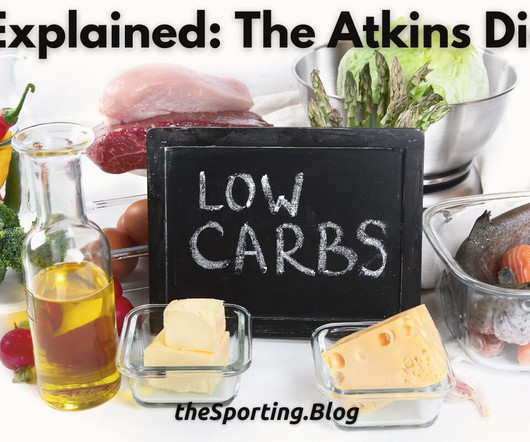The Atkins Advantage: Why It's More Than Just a Low-Carb Diet
The Sporting
AUGUST 14, 2023
Atkins' Diet Revolution," published in 1972, became an instant bestseller, sparking both enthusiasm and controversy in the nutrition community. Despite the emergence of various other low-carb diets, the Atkins Diet remains a cornerstone in the world of nutrition, symbolizing the shift from traditional low-fat dieting paradigms.












Let's personalize your content